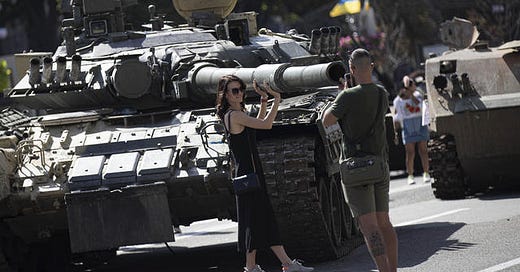Weekend Update #114: The Year that Confirmed Russia Can Be Beaten
And My Failings and Successes for the Year
Hi All,
The first weekend update of 2025 is the perfect time to give a summation of the most important lessons of the last year. However before that I want to do something I’ve done the past few years—a session of self criticism, where I go through what I got wrong in 2024 (and a little what I got right). Its important to do—to realize what you got wrong…
Keep reading with a 7-day free trial
Subscribe to Phillips’s Newsletter to keep reading this post and get 7 days of free access to the full post archives.


